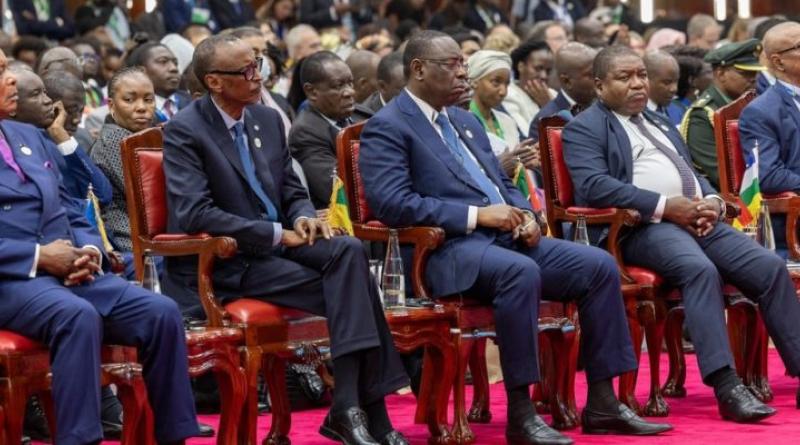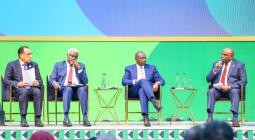Climate summit: hitherto divided, Africa adopts the “Nairobi declaration”

As the African Climate Summit closes in a few hours in Nairobi, Kenya, many questions remain unanswered. Among them, the question about the content of the final declaration of the high mass which brings together around twenty heads of state and government in Nairobi, Kenya since September 4, 2023 and several other personalities. A first draft of the text, which should define the common position of the 54 African countries in the climate negotiations, was presented last Monday by Kenyan President William Ruto and the secretariat of the African Union (AU). Text which was harshly criticized by environment ministers.
At the end of the African Climate Summit on September 6, 2023 in Nairobi, Kenya, African Heads of State and Government will adopt the final declaration of the meeting. William Ruto, the Kenyan President wants the outline of “African solutions” to be proposed at the 28th UN Climate Conference of Parties ( COP 28 ), which will take place from November 30 to December 12, 2023 in the United Arab Emirates (WATER). Thus, in collaboration with the secretariat of the African Union (AU), the East African country has prepared the text which should define the common position of the 54 African countries in the climate negotiations in Dubai. But against all odds, his presentation on September 4, 2023 to African environment ministers in Nairobi, sparked disagreements.
A dozen country representatives took the floor, starting with the Comoros, which holds the rotating presidency of the AU. “We had asked that the role of the oceans and the blue economy appear in the text ,” regretted Houmed Msadié, Minister in charge of Agriculture, Fisheries and the Environment (also spokesperson for the Comorian government), can we read in an article published by the French newspaper Le Monde . Another discontent is Botswana, which wants the question of adaptation to climate change to be posed clearly in the future declaration of the first African Climate Summit.
An opinion shared by Egypt, which specifically requested that the objective of doubling the international funding dedicated to this adaptation be included in the final Nairobi text. South Africa's Environment Minister Barbara Creecy, meanwhile, said her country would not support "the call for a new global tax regime to fund large-scale climate action" . On this point, Nigeria has also expressed reservations, indicates the French newspaper Le Monde.
A single African position would be a start to a solution to the climate crisis
One of the most notable outings was of course that of Arlette Soudan -Nonault, the Congolese Minister of the Environment, Sustainable Development and the Congo Basin for whom it is also important to highlight the contribution and expectations of Africa towards the biggest polluters. The latter are not necessarily "African", she insisted. “It is a text that commits the continent for COP28 and well beyond. We cannot accept a statement of which certain passages present the situation in such a shocking way for Africans”, regrets the Congolese authority which is preparing the Summit of the three basins scheduled for Brazzaville from October 26 to 28, 2023. Some Ministers of the Environment were all the more shocked because their proposals had already been transmitted to the AU Secretariat, as well as international organizations. “There cannot be two African positions, the one written in Nairobi and that of our group of negotiators” , indicates the Ethiopian Ministry of the Environment. And the Pan-African Alliance for Justice (Pacja) specified to the special envoy of Le Monde: “Africa must not engage in false solutions. The continent is being ravaged by climate change and the carbon markets the summit wants to promote will not serve climate justice . ”
Indeed, if William Ruto is committed to the energy transition, stimulated by the gradual replacement of carbon-based fuels with renewable energies , this is far from being the case for all African countries which are still seeking to resolve the equation access to electricity. Moreover, 600 million people are still deprived of this basic service in Africa. In addition to the need for access to electricity, there are problems of access to water in the face of drought, food security, etc.
All eyes therefore remain on Nairobi where everything should be decided a priori.




